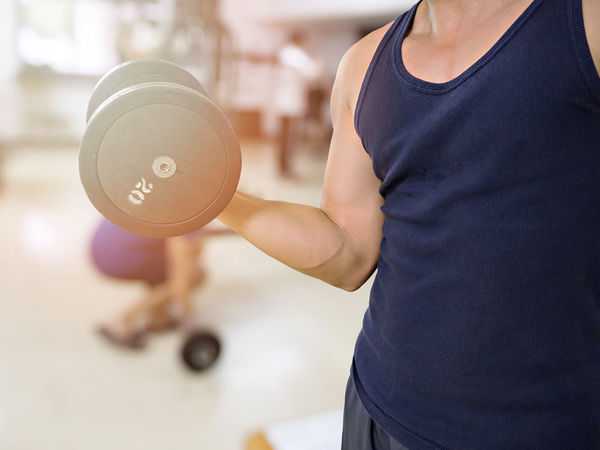
Whether you are an athlete diligently training for an event, or just a weekend warrior, there are things you can tweak or add to your diet that have been proven to boost performance or enhance specific health goals.
Goal: To Increase Muscle
We all need protein in our diets just to simply maintain and repair the body’s current level of muscle mass. However, if you wish to build more muscle, you need to pay extra attention to the amount and the timing of dietary protein intake. There is an optimal window within two hours after exercise in which the body is most receptive to protein. Strive for 20 grams (equivalent to a 3 ounce piece of chicken), and follow it up with another 20 grams of protein 3 to 5 hours later. In particular, research has shown a distinct advantage to whey protein. This type of protein is digested faster than other forms of protein and can lead to higher gains in lean muscle mass. It is easy to find whey protein in the form of powders for shakes and smoothies.
Another hot protein topic is branched-chain amino acids (BCAA), otherwise known as leucine, isoleucine, and valine. During exercise, their oxidation is increased, so an increase in intake afterwards can help support gains in lean body mass. Consume fish, eggs, chicken, beans, nuts, and soy to get in enough BCAAs. You can also take BCAAs in capsule or supplement powder form.
Finally, consider supplementing with HMB (the amino acid metabolite beta-hydroxy beta-methylbutyrate). HMB has been shown not only to increase muscle mass with exercise, but also to protect against excessive protein breakdown. It’s not easily ingested in our normal diets, so this is one that would need to be consumed through sports supplements.
Goal: To Increase Power
Creatine has been extensively studied for over twenty years. It is known to increase power output and improve aerobic performance and recovery. Studies show that individuals taking creatine have gained 2 to 5 pounds more muscle mass than controls during 12 weeks of training. Its intake is also linked with increased bone mineral density. Individuals usually supplement with 3 to 5 grams per day.
So depending on your health and fitness goals, diets play a big part. While ideally it is best to take a food-first approach when trying to boost athletic performance, sometimes food just doesn’t provide the amounts needed, (i.e., creatine and HMB). Supplements can help bridge the gap in those cases.